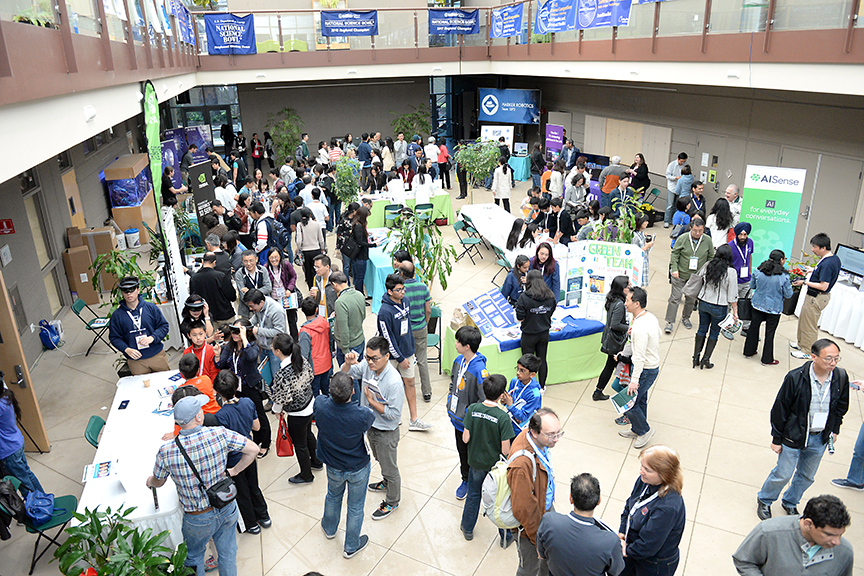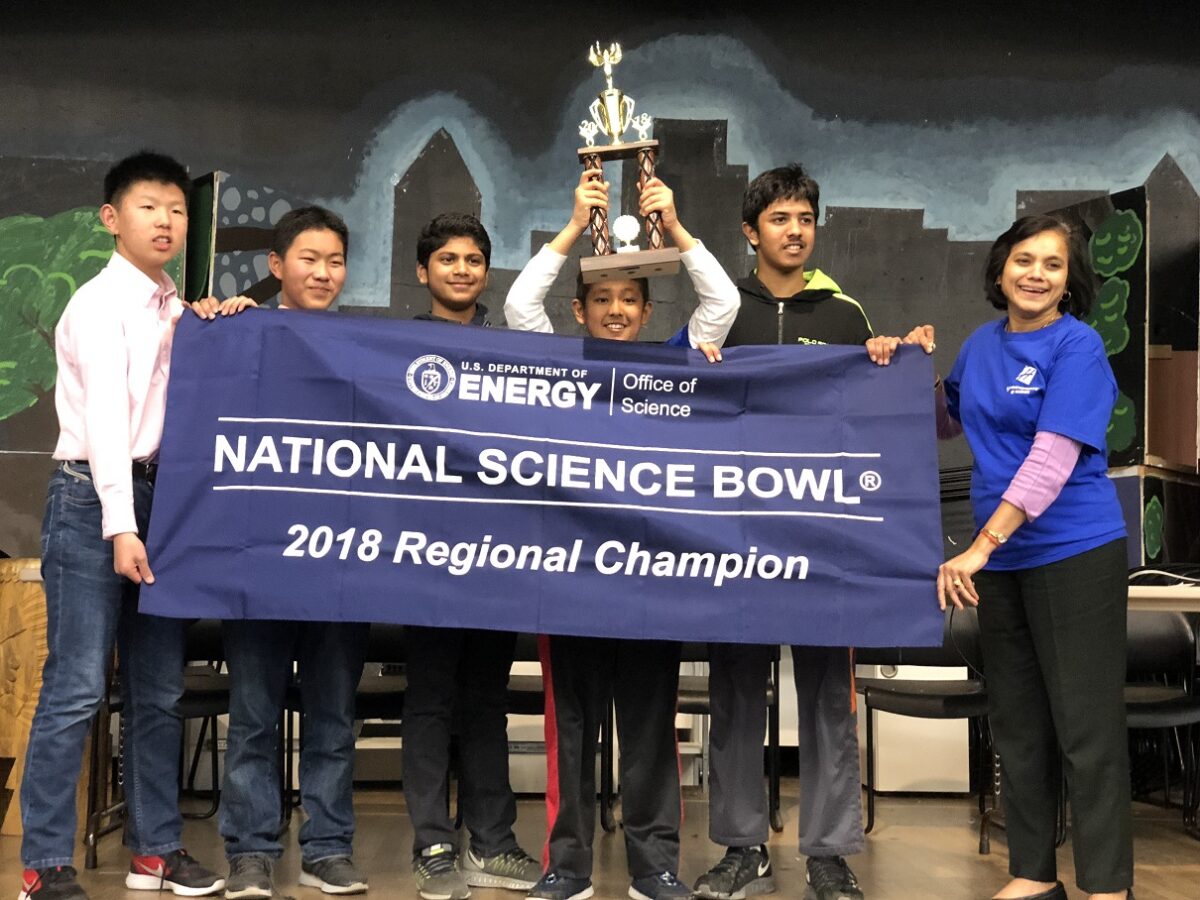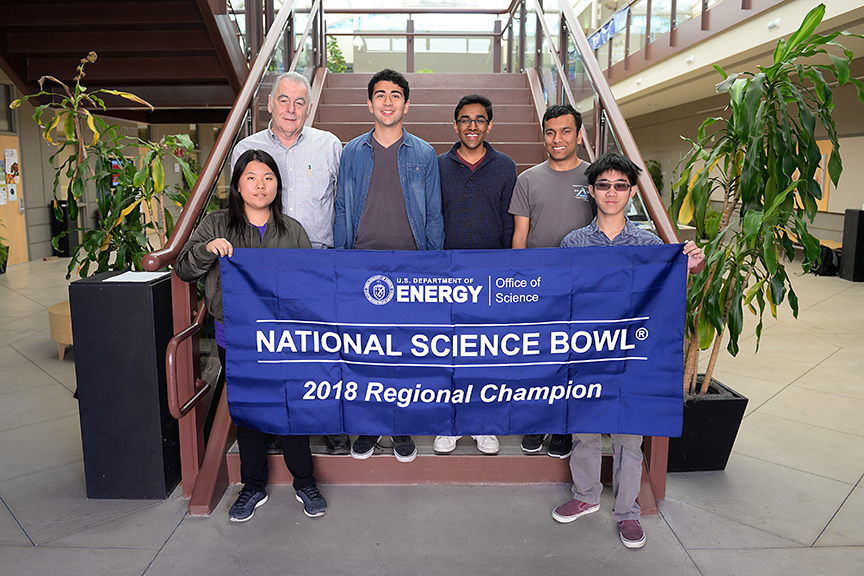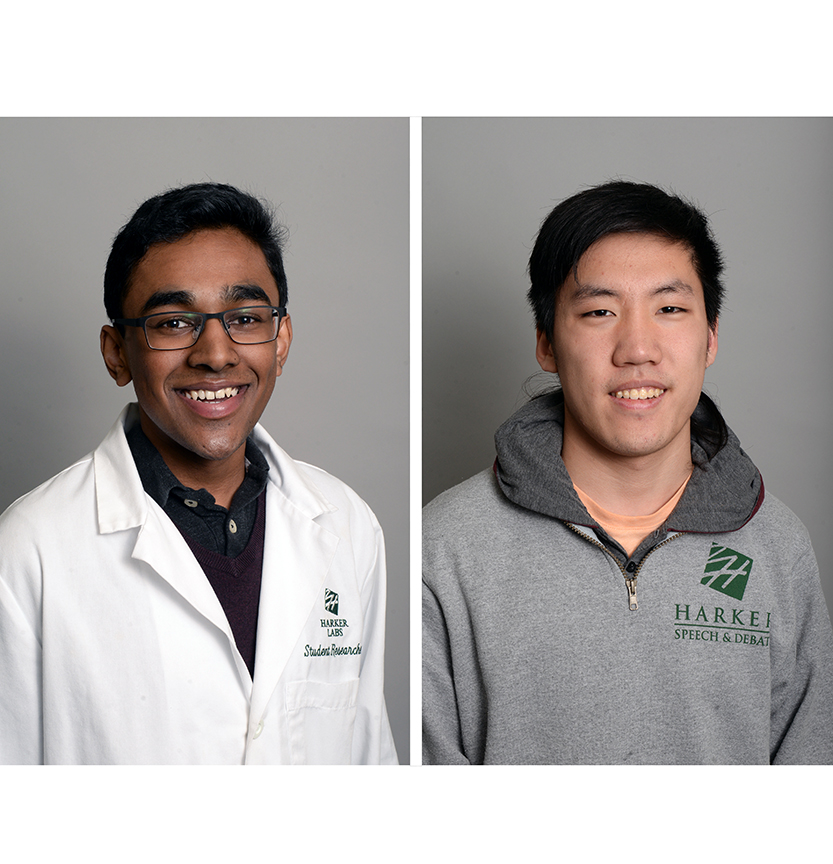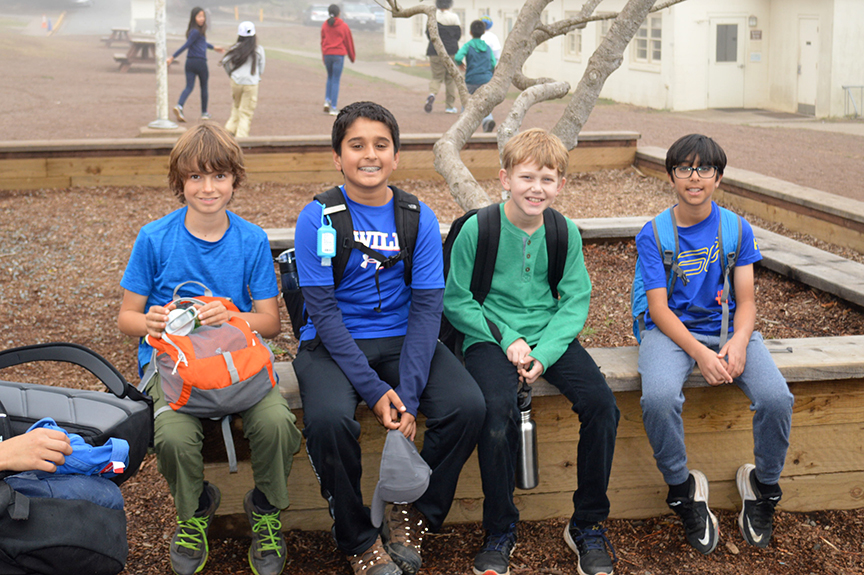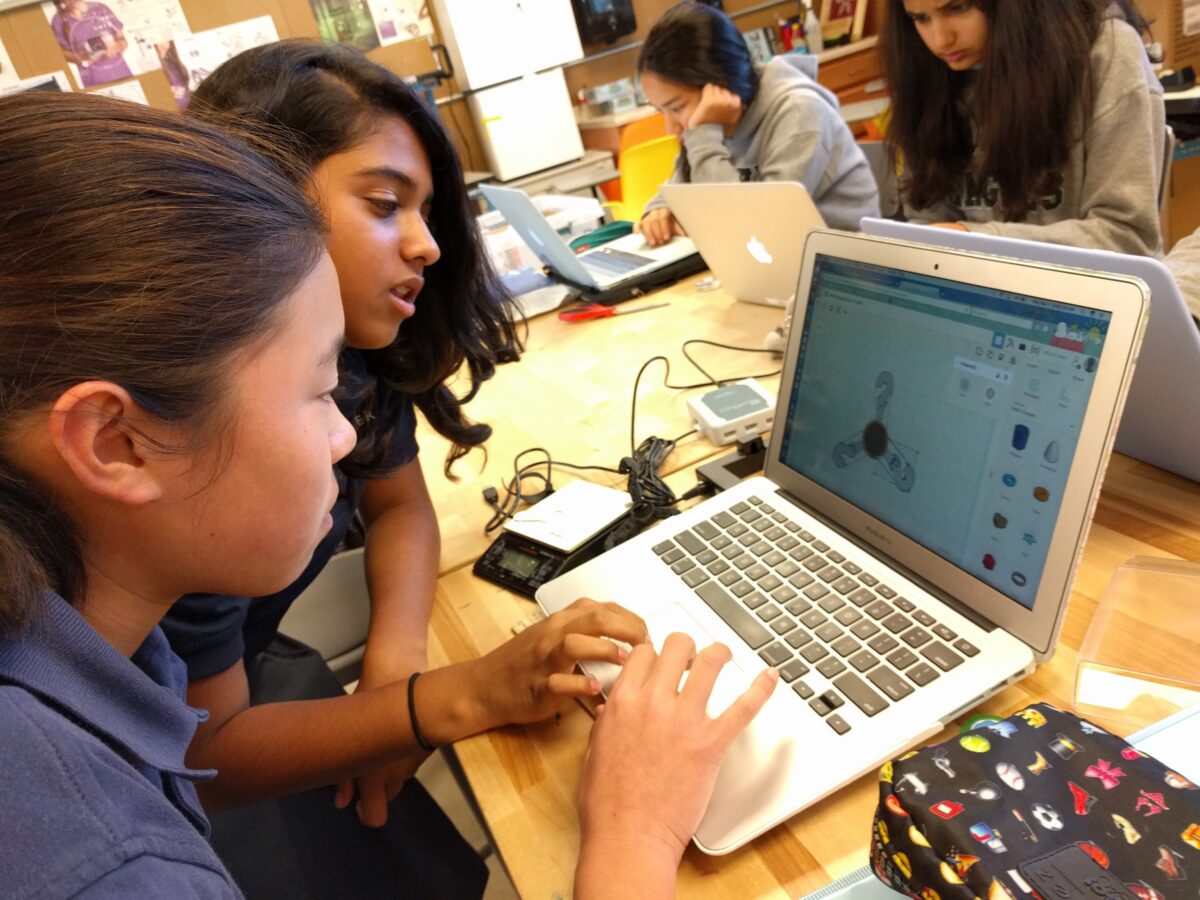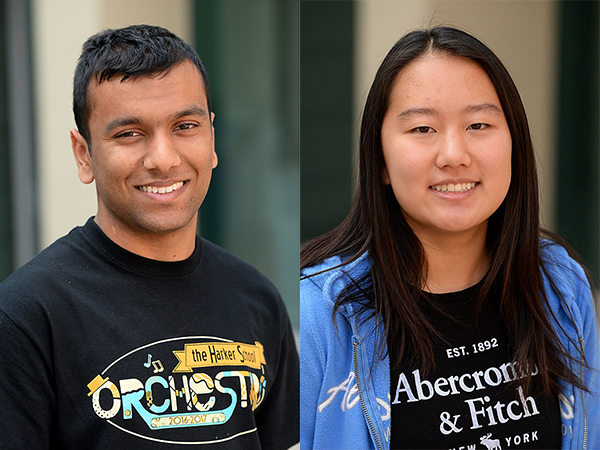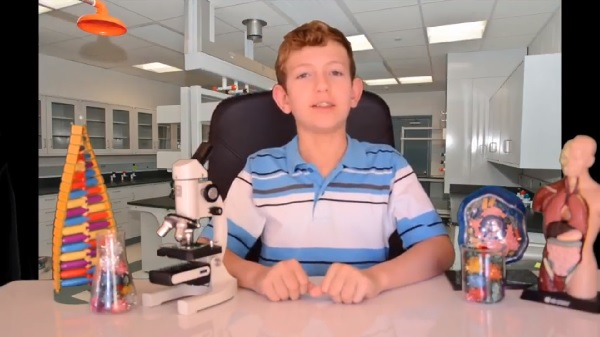At last month’s Synopsys Science & Technology Championship, four Harker juniors were grand prize winners, which earned them a trip to the Intel International Science and Engineering Fair.
Science
Harker community explores the burgeoning field of artificial intelligence at 2018 Research Symposium
The 13th annual Harker Research Symposium, held Saturday at the upper school campus, drew more than 700 people from the Harker community to learn more about “The Artificial Intelligence Revolution” – this year’s theme – and see the work of Harker student researchers.
Middle school teams excel in ExploraVision contest, one named regional winner
MS Science Bowl teams exceptional at regional event, one team moves on to nationals
Two teams of Harker students performed admirably at this past weekend’s Middle School Science Bowl regional competition.
Upper school Science Bowl team qualifies for national finals two years in a row
Harker’s upper school National Science Bowl team A qualified for the national finals after going undefeated in the regional competition at Stanford’s SLAC National Accelerator Laboratory.
Society for Science names two seniors finalists in 2018 Regeneron Science Talent Search
Two Harker seniors were announced as finalists in the 2018 Regeneron Science Talent Search. They will be headed to Washington, D.C., in March for the final stage of the competition.
Grade 5 explores Marin Headlands on annual trip
Last week, fifth graders headed up to the Marin Headlands for the annual class trip, during which they took in the breathtaking views offered by the hilly destination, located just across the Golden Gate Bridge.
Grade 7 science students create fidget spinners as a lesson in physics
Last month, grade 7 science students made fidget spinners as a lesson in Newton’s laws of motion; teams of students designed and created their own versions of the toy.
[UPDATED] Harker team qualifies for Siemens Competition national finals
Harker had 10 semifinalists and has two finalists in the 2017 Siemens Competition! Read all about these amazing students!

